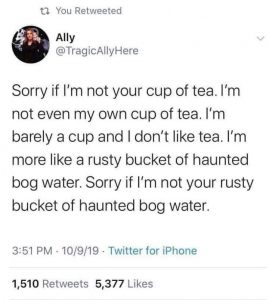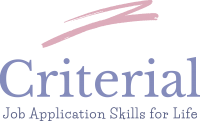The ‘tell me about yourself’ job interview question should literally be the easiest question you can ever answer right?
You are you; you’ve been you your whole life, you know you better than anyone else; so why is it so hard to answer?
First thing is the fact you are you probably means you don’t prepare for it. Second thing is there is a lot about you so in the moment you don’t know what to pick to talk about. Third is you don’t want to sound too boastful or up yourself to use a colloquialism; a topic I covered recently discussing modesty, boasting and selling yourself.
Also if you got to the interview stage – congratulations! You’ve passed the first hurdle! If you’re still struggling to secure an interview check out my ‘how to write selection criteria‘ online training course.
Why do they ask the “Tell Me About Yourself” question in job interviews?
Like the questions I recently blogged about building relationships that get asked, there is a specific reason why this questions gets asked.
The Simple Answer
First, they want to know about you. It’s quite simple and there is no hidden agenda to that aspect. Quite often it is an ice breaker question at the start of the interview. Something the panel can ask that’s not related to the job, not out of the blue and something you should have an answer for as you are you.
If you’re an external applicant, the panel has never met you. Apart from what you have said in your selection criteria response, they know nothing about you, so it is an opportunity to say something about yourself.
What You Prioritise
The completely open question “tell me about yourself” gives you an infinite choice what you can talk about. What you freely chose to talk about gives some indication of how you think and where your priorities lie.
Consider these possible responses from the perspective you are on the interview panel:
- “I enjoy long walks on the beach, picnics, good red wine and I rescue kittens in my spare time”
- “I really need this job. I have been applying for hundreds of jobs with no luck. This is my first interview and if I don’t have a job by the end of the week, I can’t pay my bills”
- “I actually didn’t think I had the skills for this job, and I’m really surprised to be here today”
- “I’m so looking forward to getting this job. I think the business area is awesome and it’s my goal to become the general manager, so this job is a perfect start. I hope I can progress really quickly, like in the next few months”
- “Well, I’m Richard as you obviously know. I have been working in this field for about five years and I think I have accomplished all I can where I currently work. This role is a step up and I am confident I have the skills and I want the challenge. Outside of work I have several hobbies which keep my work, family and life balanced”
So clearly they’re made up, but they’re also not unrealistically diverse compared to what I have heard before today.
Your Thoughts?
What are your thoughts on each? Aside what the words say, what is the message from each that a reading it as a potential employer, you might hear from them? Something like:
- You care and have passion, sounds like a dating profile and they know nothing about your thoughts of yourself about work.
- You’re in a hard spot obviously, most worryingly it sounds a bit like emotional blackmail.
- You lack confidence and you’ve contradicted the panels opinion of you because they think you do have the skills
- You’re ambitious, you’ve got a high opinion of yourself which is okay but if you want to be the general manager why are you interviewing for this role?
- Nice balance of personal and work, someone who is conscious of looking after themselves, and, it’s not 50/50 work/personal but nor should it be. It’s a job interview so it should be tipped towards your work.
Your Answer Is Not Assessed
Impressions about your answer can be considered in the context of your overall application/ interview outcome. The answer to the question itself however is not assessed like other interview questions are where they are scored and compared against each other. This scoring and assessment is about the relative strength of your examples compared to other applicants. As this is an open question and not on the criteria it is not assessed in that way.
What Do They Want to Hear?
What ‘words’ do they want to hear? That’s your choice.
What ‘message’ do they want to hear? You can best answer this thinking about putting yourself into their shoes. What is the role? What are the mission and values? What are the business priorities? The message they want to hear is a clear alignment between all those things and you.
Later in the interview you can get to talking about your skills, experience and showcase them in your selection criteria examples. This question lets you position yourself as a person to the panel, show how you think, what you value and that you understand how to present yourself to a future employer.
A few specific things to think about.
Don’t go Overboard on ‘You’ in this Question or your Resume
Most people have a section, usually at the end of their resume, where the describe their hobbies/interests and some other brief characteristics. Answering the personal aspect of this question in an interview should be a lot like your resume. Brief. If you do indeed like red wine and you win the job, there will be lots of time to discuss our collective interest in red wine in the future.
When you have limited time in a job interview, and you need to show you are the best person for a job is not the time to go into depth on red wine.
Be Balanced, Be Professional
 Why? Because you are showing yourself to a prospective employer and am employer will always want someone balanced and professional. That is how they will represent the organisation. It’s okay to have an appropriate senor of humour if that is who you are but do it in balance.
Why? Because you are showing yourself to a prospective employer and am employer will always want someone balanced and professional. That is how they will represent the organisation. It’s okay to have an appropriate senor of humour if that is who you are but do it in balance.
Prepare Your Answer for the Job Interview
You need to prepare an answer for this because it is a hard question to answer in the moment considering all the things you need to consider about the role, balancing personal information and the job context.
You need to prepare an answer for each interview. You can have a general framework for sure but when you’re specifically linking aspects of this answer to the job, you need to do that in advance.
Look at their mission and values, look at their about us information. From that you can identify what they care about and how they think so you can frame your response to cover those aspects.
Taking A Risk
There is a time and place to be contentious, take a risk and/or put it all on the line. A job interview can be that place but tread very carefully.
Taking a risk means putting something out there that may lose you the job in a heartbeat. I have done it once in an interview. It had got to the end of the interview and as a closing question I was asked “Is there anything else you want to tell us?”
I said something like this “My personality type is that I question. I think outside the box, I respect authority but will question the basis of decisions if they seemed flawed. I am in INTJ[1]. I will analyse and ask questions. If you don’t want someone who does that then don’t employ me”.
In short – I’m not everyone’s cup of tea.
 I went on to explain that having recently come out of the paramilitary style organisation that is the police where questioning is not welcomed in many cases (especially of your superiors) I did not want to be another round peg trying to fit in a square hole.
I went on to explain that having recently come out of the paramilitary style organisation that is the police where questioning is not welcomed in many cases (especially of your superiors) I did not want to be another round peg trying to fit in a square hole.
It is not an unreasonable thing to do because no-one wants to go into a job where they are miserable or in conflict, but it is a risk and could have lost me the job in an instant.
If you need the job irrespective of your circumstances, then don’t do it. If, like me, you are in a place where you are done trying to fit other people’s mental models and expectations, and, you want to be clear about your own then it might be appropriate.
That’s only one example of taking a calculate risk. If you plan to take a risk, think it through and balance the pros and cons.
Risk taking obviously does not include gender, sexual preference, religious beliefs etc as you cannot be discriminated against on those grounds.
I got the job by the way. Turns out my skills were what they wanted, and, the way I approached things was also exactly what they were looking for. They did not want a “yes person”.
[1] A Meyers Briggs personality type characterised as an introverted person with intuition, deep thinking/analysis, high value on knowledge and judging personality traits
What If You Already Work There?
I blogged a while back about applying for a job where you work and strategies to make sure you present yourself at your best.
The “tell me about yourself” interview question might seem redundant in a workplace where you are known but it is still asked. Why?
First, it is asked to be consistent in terms of process across all interviews. All interviews had the same questions and the same opportunity to answer them. That ensures fairness.
Second, it is still an opportunity for you to tell the panel about yourself. No-one knows anyone better than you and don’t assume the panel knows everything about you. Most panels have minimum one person from another work area, sometimes two, so there are at least that many people who don’t know you for a bar of soap. The “tell me about yourself” question is therefore a free hit to market yourself, if nothing else.
If they do know you
There may be a situation where everyone knows you well, unlikely but possible. To answer the question, acknowledge the panel members know you, or a lot about you. That takes the awkwardness of talking about yourself to people who know you off the table. It clears the air to answer the question.
To answer the question, what you want to do is either build on that knowledge, or, say something new.
To Build
Take something they know about you and improve it. As I discuss in the interview preparation blog, you never want to just answer the question; you always want to say something more and set yourself apart from other applicants. So, do that here. Talk about something they know about you and show you know more than they thought, or, show how your passion for something extends outside the workplace and you give back to the community. Anything that adds the sort of value discussed in this blog.
To Say Something New
This could be your opportunity to be controversial, or, show a side of yourself they never knew, or, show skills they never you never had. Either way what you want to do gently, is a bit of psychological disruption. A disruptor is defined as:
A person, company, or technology that changes the way an industry operates, esp in a new or innovative way. Until fairly recently, calling someone a “disruptor” wasn’t a compliment. … Now being “disruptor” is a positive. Entrepreneurs such as Elon Musk are lauded when they seek to “disrupt” established industries such as car manufacturing. Large companies appoint “chief disruption officers”. Civil servants, teachers and school children are now encouraged to become disruptive innovators. [The Guardian, May 2019]
Why disrupt? It’s a tool to break a mental model about you and leave a lasting positive impression. Again, as discussed in the applying for a job where you work blog you want to avoid wherever possible letting people rely on their mental models about you or preconceived ideas or that they “know who you are” because those mental models may not be right.
Being known means it is harder to get someone to see you in a new light. Disruption therefore gives you the opportunity to shock and impress them a little so after you walk out they have a “wow I did not know that” impressed feeling.
If some of the panel don’t know you
In the context of answering this question in a workplace you are known, and as stated at least someone will know you well; start the same way. Acknowledging the person or people who already know, and, acknowledge there are people who don’t so there are differing levels of knowledge. Once again that takes the awkwardness off the table and shows you are understanding of your audience. Hot tip, that’s showing you have communication skills and can adjust your communication to suit your audience.
After that, as just discussed what you want to do is either build on the knowledge that person has, or, say something new to them. To the people who don’t know you, whatever you say will be new.
Share this post

